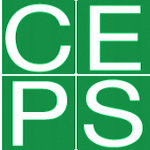4th European Symposium (14 October 2008, Brussels)
"Early Matters: Symposium on Improving Early Childhood Education and Care"
The European Network of Experts on Economics of Education (EENEE) and the Network of Experts on Social Sciences of Education and Training (NESSE) are currently supporting the Commission in the analysis of education and training policies and reforms and of their implications at national, regional and European level. Like in the previous year, these two networks of independent experts participated in a joint symposium in Brussels on 14 October 2008. The topic was "Improving Early Childhood Education and Care". The importance of pre-primary education was already emphasized in the 2006 Commision's Communication on "Efficiency and Equity in European Education and Training Systems", the 2007 European Parliament's Resolution on the same topic and several other publications of the Commission. It is considered as one of the crucial drivers for achieving the Lisbon goals.
Investing in quality Early Childhood Education and Care (ECEC) is crucial, as it is at this stage that the foundations are laid for subsequent learning and achievements, and also because investing in quality provision is shown to contribute substantially to breaking the cycle of disadvantage. Within the EU, different realities can be observed across Member States in terms of enrolment rates, supply, quality, resources, approach and governance.
This symposium will provide a basis for enhanced European policy cooperation in this field. The 2006 Commission's Communication Efficiency and Equity in European Education and Training Systems (and the relevant Council Conclusions) and the 2007 European Parliament's Resolution on the same topic highlighted the importance of pre-primary education and encouraged EU Member States to support more all forms of pre-school education and intervention at an early age and to improve their quality. The 2008 Joint Progress Report of the Commission and the Council on the implementation of the "Education & Training 2010" Work Programme underlined that the importance of pre-primary education is increasingly recognised throughout Europe and called for moving beyond existing pilot projects into generalised implementation, supported by investment, in particular in qualified staff. Also, the new Commission's Communication on Schools underlines that improving pre-school provision and widening access to it are potentially the most important contributions that school systems can make to improving opportunities for all and for achieving the Lisbon goals.
The symposium will bring together European and national policy-makers, representatives of European stakeholder organisations, practitioners, other actors, international organisations and members of the research community, including the European Network on Economics of Education (EENEE) and the Network on Social Sciences of Education and Training (NESSE). The programme includes presentations from researchers, policy makers, and practitioners.
Besides the overall conclusions drawn by the DG Education and Culture you will find below the programme of the symposium, with links to the presentations given. A summary of the presentations and discussions, is available following this link.
4th European Symposium
"Early Matters: Symposium on Improving Early Childhood Education and Care"
Organized by the Organized by DG-EAC of the European Commission and supported by the European Expert Network on Economics of Education (EENEE) and the Network of Experts in the Social Sciences of Education and Training (NESSE)
14 October 2008
Conference Centre Albert Borschette
36, Rue Froissard - Brussels
TUESDAY 14 October (09:00-16:45)
09:00-09:30 Welcome and Registration
09:30-09:45 Opening by Ms. Odile Quintin, Director-General of the DG-EAC [Speech]
09:45-10:10 Keynote Speech: Why do countries invest in early childhood education and care?
Speaker: Dr. Lawrence J. Schweinhart, President High/Scope Educational Research Foundation,Ypsilanti, Michigan [Presentation]
10:10-11:15 SESSION 1: Economic and Social Aspects of ECEC
Chair: Mr. Jean-Michel Baer, Director for "Science, Economy and Society", DG Research
"The economic importance of early childhood education in a European perspective"
Presenter 1: Prof. Torberg Falch, (Norwegian University of Science and Technology and EENEE) [Presentation]
"The social importance of ECEC - Tackling Inequalities and disadvantage through ECEC"
Presenter 2: Prof. Helen Penn, (School of Education, University of East London and NESSE) [Presentation]
Discussion
11:15-11:35 Coffee break
11:35-12:45 SESSION 2: Towards Quality and Equity: Key Lessons from OECD and UNICEF Work and Their Implications for Policy
Chair: Mr. Pierre Mairesse, Director for Youth, Sport and Citizenship, DG EAC
"Key conclusions from OECD work on ECEC and their implications for policy"
Presenter 1: Ms. Deborah Roseveare, (Head of the Education and Training Policy Division, OECD Directorate for Education) [Presentation]
"Towards quality ECEC services in Europe for all - key messages from UNICEF Innocenti Research Centre work and their implications for policy"
Presenter 2: Dr. Eva Jespersen, (Chief, Monitoring Social and Economic Policies, UNICEF Innocenti Research Centre) [Presentation]
Discussion
12:45-14:15 Buffet Lunch
14:15-16:30 SESSION 3 (Interactive Panel): Implementing Quality ECEC Services - Lessons From Practice
Chair: Mr. David Coyne, Director for "European Social Fund - Monitoring of Corresponding National Policies and Coordination", DG Employment, Social Affairs & Equal Opportunities
Panel:
Dr. John Bennett, Visiting Fellow at the Thomas Coram Research Unit, University of London Institute Of Education, co-author of the OECD Starting Strong reports
Ms. Viviane Bouysse, Inspectrice générale de l'Education nationale, Ministère de l'Education Nationale, France
Ms. Paola Cavazzoni, Preschools and Infant-toddler Centres of the Municipality of Reggio Emilia, Italy
Dr. Márta Korintus, Institute for Social Policy and Labour, Hungary
Mr. Stig Lund, Danish National Federation of Early Childhood Teachers and Youth Educators (BUPL) and representative of the European Trade Union Committee for Education (ETUCE)
Prof. Ted Melhuish, University of London (Birkbeck), Executive Director, National Evaluation of Sure Start
Prof. Ingrid Pramling Samuelson, President of the World Organisation for Early Childhood Education (OMEP)
16:30-16:45 Conclusions for European policy cooperation
Mr. Adam Pokorny, Head of Unit "School Education; Comenius", European Commission, DG-EAC [Presentation]







